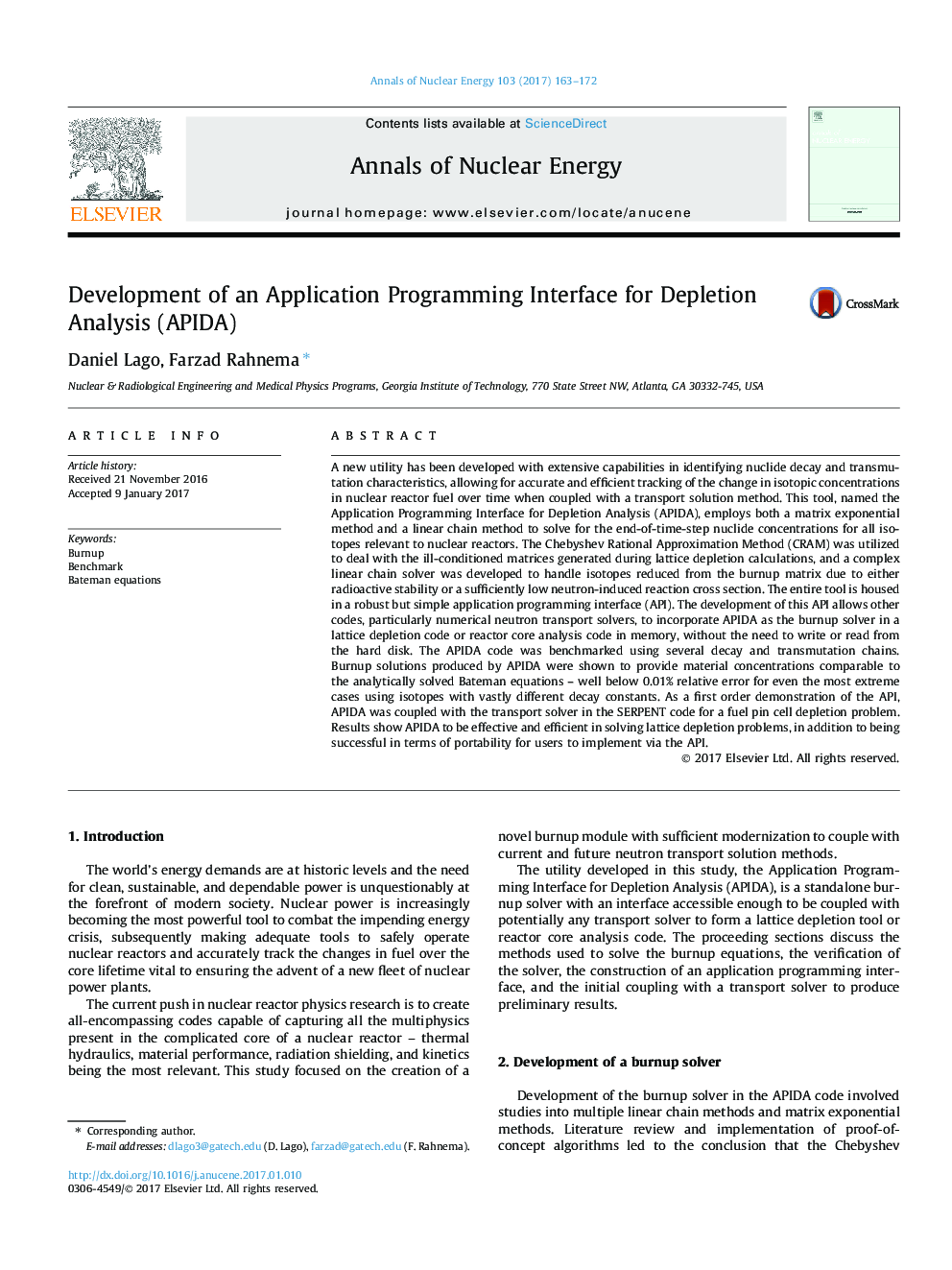| Article ID | Journal | Published Year | Pages | File Type |
|---|---|---|---|---|
| 5475214 | Annals of Nuclear Energy | 2017 | 10 Pages |
Abstract
A new utility has been developed with extensive capabilities in identifying nuclide decay and transmutation characteristics, allowing for accurate and efficient tracking of the change in isotopic concentrations in nuclear reactor fuel over time when coupled with a transport solution method. This tool, named the Application Programming Interface for Depletion Analysis (APIDA), employs both a matrix exponential method and a linear chain method to solve for the end-of-time-step nuclide concentrations for all isotopes relevant to nuclear reactors. The Chebyshev Rational Approximation Method (CRAM) was utilized to deal with the ill-conditioned matrices generated during lattice depletion calculations, and a complex linear chain solver was developed to handle isotopes reduced from the burnup matrix due to either radioactive stability or a sufficiently low neutron-induced reaction cross section. The entire tool is housed in a robust but simple application programming interface (API). The development of this API allows other codes, particularly numerical neutron transport solvers, to incorporate APIDA as the burnup solver in a lattice depletion code or reactor core analysis code in memory, without the need to write or read from the hard disk. The APIDA code was benchmarked using several decay and transmutation chains. Burnup solutions produced by APIDA were shown to provide material concentrations comparable to the analytically solved Bateman equations - well below 0.01% relative error for even the most extreme cases using isotopes with vastly different decay constants. As a first order demonstration of the API, APIDA was coupled with the transport solver in the SERPENT code for a fuel pin cell depletion problem. Results show APIDA to be effective and efficient in solving lattice depletion problems, in addition to being successful in terms of portability for users to implement via the API.
Keywords
Related Topics
Physical Sciences and Engineering
Energy
Energy Engineering and Power Technology
Authors
Daniel Lago, Farzad Rahnema,
